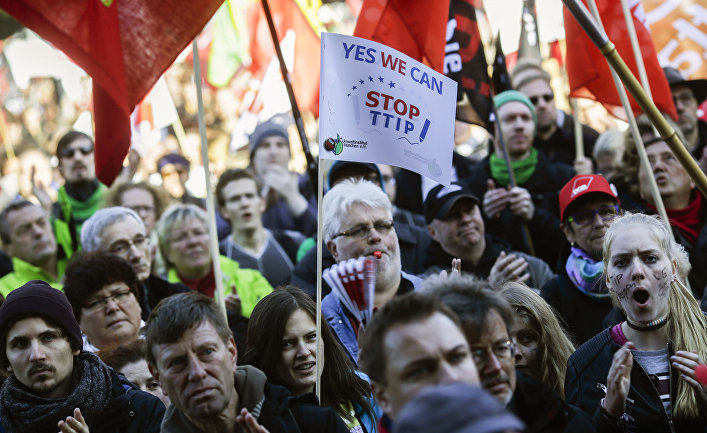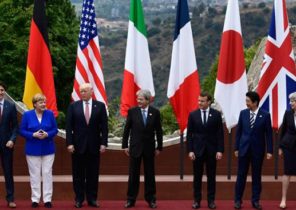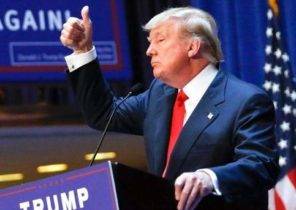
Today, the great economist and Nobel prize winner Maurice Allais (Allais Maurice) probably would have accused of populism. While he was still in those days spoke about the negative impacts of globalization, inconsistent, and in favor of reasonable protectionism to protect the French economy.
The European Union has abolished customs duties between member countries due to the overall market, but applies them at the external borders to protect their economic interests. Here we are now seeing a rather strange behaviour on the part of the EU. It develops a positive trade balance with the US, but negative with China, Russia and other developing countries on a number of clearly defined goods: textiles, electronics, raw materials etc. and although the EU, as it seems, sometimes turns its back on its historic American ally, he is suicidal reaches out economic powers much lower than his standard of living.
Adopted today in the EU, the average customs duty is 3.1% higher than the us (2.1 percent), but lower than Japan (3.9 percent), canadian (3.4%) and worldwide (5,6%). But as they say, the devil is in the details, and the EU is poorly protected where it is generally useless, and opens the border where economic risks are much more serious.
In the agricultural sector we would be interested in cooperation with the United States and the imposition of duties on goods, for example, from Argentina. We should return to the Alliance with the United States. In addition, the geo-climatic situation of the EU gives it a definite quality advantage. The EU has at hand all the cards to cooperate with US in this area and make them a reliable partner. At the same time, the EU would be interested in the protection of agricultural products from developing countries on a range of economic reasons (social dumping, prices, quality…).
A simple example: in the European market, American exporters face the highest duties as the time in the agricultural sector (12.8% in average). With regard to exports of European agribusiness in the United States, where duty is 6.6%. Overall, the European duty on agricultural products (17.9 percent) higher than the us (5%), but lower current in many developing countries (60% in India) and the world average (19.1 per cent). In other words, a protective measure aimed not at what it should be, and the fears of the American export unfounded. In any case, all could be solved through negotiations, whether sterilized chicken or hormone beef…
In addition, we support using the tax industry, are experiencing a decline because of international competition from developing countries, India and China. I think there is no need to clarify that the WTO agreement was ratified, but China still does. This leads to disruption of the system and may justify an adjustment on our part. It would be sufficient to introduce higher duties on goods from that country. As for European exports to the US, where it is about collecting an average 1.7% for industrial output, compared to 2.2% in Europe for American exports.
At the same time, Europe is among the areas where there are the lowest fees relative to countries with low production costs. That is, she opens itself up to threats of imports from them. In developing countries tariffs on industrial products are much higher: 30% in India and 11.4% in Brazil, against only 2% in the European Union.
As in the agricultural sector, the new protectionist measures should be directed against these economic and geographic areas. If you think about it, is the transatlantic free trade made no sense? We need not scream about some imaginary threat, and rethink the rules of the game between the historic allies (EU, Canada, USA) and new economic powers from the developing countries. You can’t go wrong with the struggle. Transatlantic agreements require new negotiations to determine the rules of the game with our historic allies.
Overall, globalization exposes a lot more European (including French) economy economic risks, though, and offered her some opportunities for growth in the past. Times have changed. We believe that protectionism is not isolation, but rather greater openness, a constant re-evaluation a level playing field in flows of goods, capital and migrants in the framework of a competitive and open environment that is prone to certain dangers (and they need to find the answer when room for maneuver in the budget no longer remains). This calls for greater flexibility in the future if developing countries possible agreement in economic terms. We are not talking about a closed system and isolationism, but about a game on the principle of free movement of goods.





